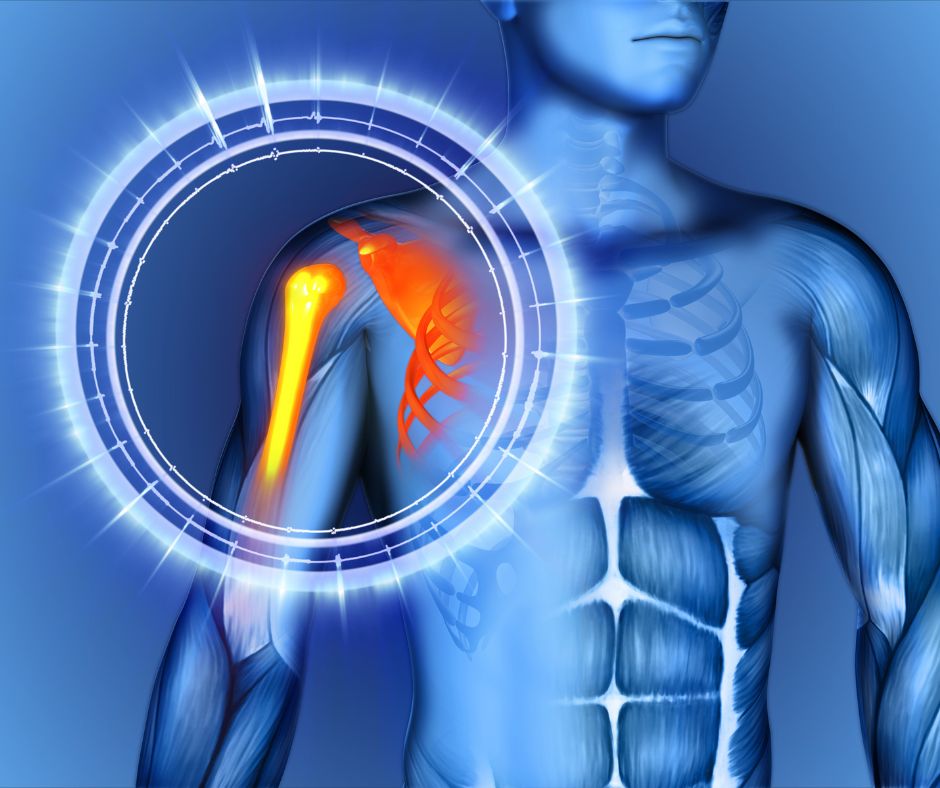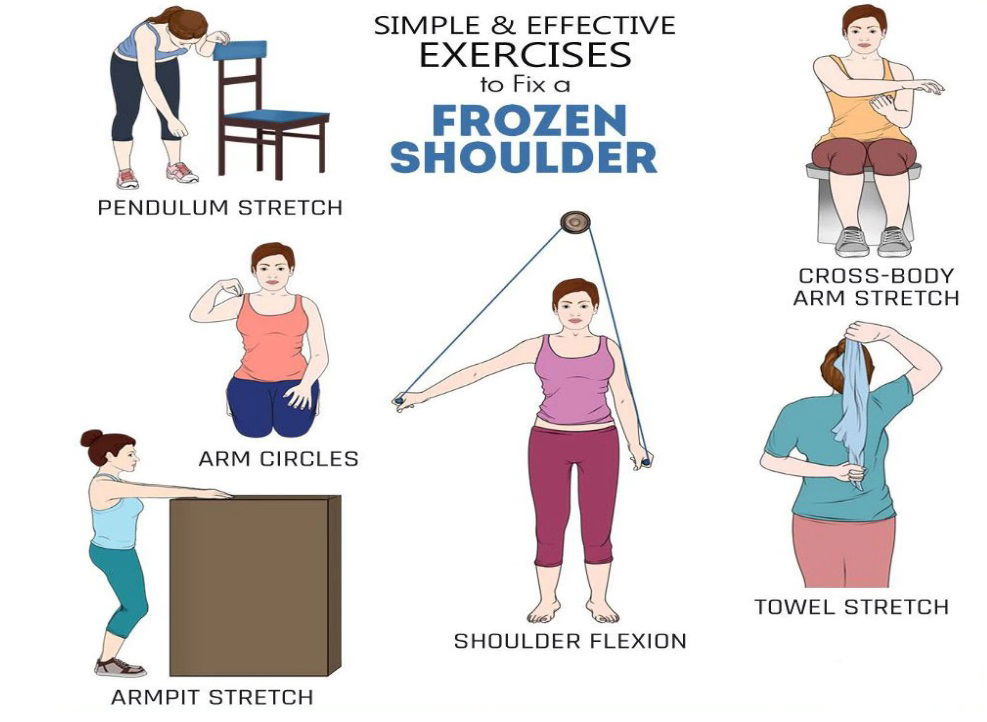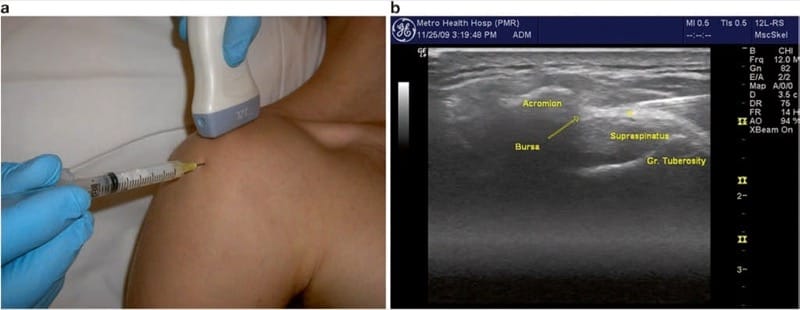Frozen Shoulder: Unlocking the Frozen Joint
What is Frozen Shoulder?
Frozen shoulder, or adhesive capsulitis, is when your shoulder gets stiff and painful, making it hard and painful to move. It develops slowly and can take months to get better.

What Causes Frozen Shoulder?
Frozen shoulder often happens when you don’t move your shoulder for a long time, like after an injury or surgery or certain health problems make it more likely:
- Age and Gender: People over 40, especially women, are more prone.
- Health Issues: Diabetes, thyroid problems, heart disease, and Parkinson’s as well as arthritis can increase your risk.
The shoulder joint has Bones, Muscles, Ligaments and any problem in these or associated structures can lead to frozen shoulder
How Are Diabetes, Thyroid Problems, and Arthritis Linked?
- Diabetes: If you have diabetes, you’re more likely to have frozen shoulder as there is increased inflammation and thickening of the shoulder joint capsule, restricting movement.
- Thyroid Problems: Overactive or underactive thyroid can also lead to this condition due to various hormonal imbalances in the body.
- Arthritis: Joint inflammation may trigger shoulder stiffness as well as Pain.
Therefore, the primary goal in treating frozen shoulder should be to address the underlying cause.
How Common is Frozen Shoulder in India?
Frozen shoulder is common in India, especially in people with diabetes. Up to 45% of diabetic patients may experience it and around 45% of all shoulder pain are due to frozen shoulder.
What Are the Stages of Frozen Shoulder?
Frozen shoulder happens in three stages:
- Freezing: Your shoulder hurts, and movement becomes harder (2-9 months).
- Frozen: Pain eases, but stiffness remains (4-12 months).
- Thawing: Your shoulder slowly improves (5-24 months).
How Is Frozen Shoulder Diagnosed?
Doctors can tell if you have frozen shoulder by asking about your symptoms and checking your shoulder movement.
HRUSG: or High-Resolution USG is given to check for damages to Ligaments
MRI : Many a time is given to confirm the diagnosis.
What Treatments Are Available?
There are many ways to treat frozen shoulder:
- Medicines: Painkillers and anti-inflammatory tablets as prescribed by your doctor.
- Physiotherapy: Exercises to loosen the shoulder is one of the best ways to cure frozen shoulder

- Injections:
- Steroids: Quite commonly given under USG guidance. It's cheap, Safe, and effective.
- PRP (Platelet-Rich Plasma): Your blood is withdrawn and processed in a machine and later reinjected into the joint.
- Nerve Block: The Nerve causing the Pain is directly blocked by injection.
- Hydrodylation: Fluid is injected in your joint to unfreeze the joint.
- Surgery: Only for severe cases when other treatments don’t work.

Do I Need Surgery?
Most people don’t need surgery. With the right care, frozen shoulder usually improves over time.
Can Frozen Shoulder Be Prevented?
Yes! Regular shoulder exercises can help, especially after an injury or surgery. Controlling diabetes and thyroid issues also lowers your risk and can prevent it from hapenning.
How Long Does Recovery Take?
Recovery can take anywhere from 3 months to 2 year, depending on the stage of the condition and when treatment begins. Starting treatment early leads to quicker recovery. Stay patient and committed to your treatment plan.
Can It Happen Again?
Frozen shoulder usually doesn’t come back in the same shoulder but might affect the other one. So never discontinue the exercise plan that your doctor has prescribed.
What Should I Do if I Think I Have Frozen Shoulder?
See a doctor early! The sooner you start treatment, the faster you can recover.